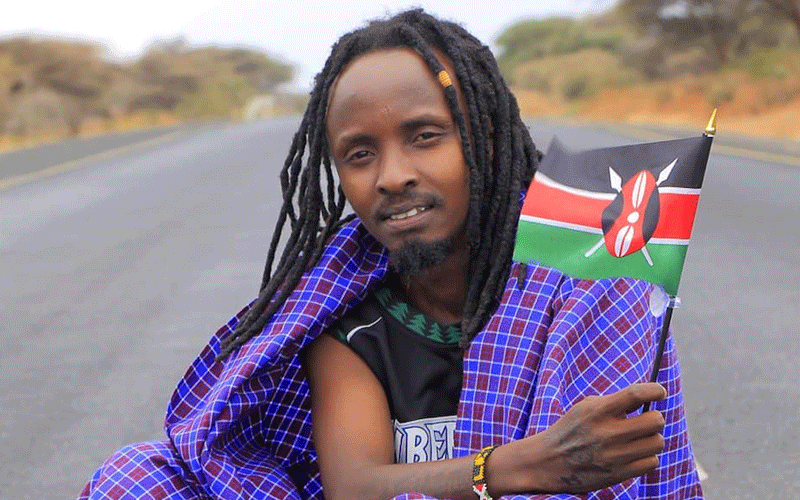Creative industry one of the most hit by Covid-19 pandemic

The creative industry has been one of the most hit by the Covid-19 pandemic and the players have to deal with the adverse economic effects. As the government hastens efforts to bail out the ailing sector, more questions continue to pop-up on the structures laid down to make this initiative successful, writes MANUEL NTOYAI
As we once wrote here a while back, the future of cartels in the creative sector remains bleak.
Last year’s directive by President Uhuru Kenyatta to move the Kenya Copyright Board (Kecobo) to the ICT ministry looked like the last nail on the coffin.
Following the directive, the Collective Management Organisations (CMOs) seemed to have become more proactive, with each emphasising on transparency and accountability, as they sought to be on the right side of the law.
With the announcement of the new tariffs gazetted recently, the CMOs —Perormers Rights Society of Kenya (Prisk) Kenya Association of Music Producers (Kamp) and Music Copyright Society of Kenya (MCSK) — were primed to get a huge chunk of the projected Sh2 billion, or so they thought.
Under the new system, 70 per cent of the royalty collection would be paid to the musicians through a government-monitored account and verified membership of the CMOs.
However, a recent Sh100 million-kitty to artistes as announced by Uhuru, created chaos in the creative industry and beyond.
Sportsmen felt left out, but the clarification by the government that there was a 35 per cent sports fund allocation cooled their heads.
“I direct the Ministry of Sports, Culture and Heritage to avail Sh100 million from the Sports Fund to our artistes, actors and musicians during the period of the Covid-19 pandemic, so they may continue to entertain their fellow brothers and sisters through TV, radio and the internet,” said Uhuru.
The money is 20 per cent of the Sports, Culture and Social Development fund, which is directly injected into the arts sector.

The in-fights
A week before Uhuru’s directive, squabbles were reported as CMOs sought to fight the newly announced Ryzikimuzik app, which they said they had nothing to do with them as royalty collectors and distributors.
With the government projecting a monthly royalty payout of Sh200 million to artistes, like sharks circling in for a kill, the CMOs took the bait only to realise that the money at stake was from the Sports ministry.
However, while creatives are awaiting for further guidelines on how the money will be disbursed, Kecobo has already announced that the money is not just for members of the CMOs, but also other actors in the creative sector.
“Deejays are also bearing the brunt of Covid-19 regulations by the government, as we need gatherings and crowds to perform, unlike other creatives such as musicians who earn from platforms such as YouTube and royalties.
DJs play copyrighted music, which makes it harder to earn online,” says DJ Patchez.
He says many DJs won’t benefit from the fund due to lack of an existing structure that may guide their industry. Majority are not members of any of the CMOs either.
“The word artiste is a wide spectrum and as we wait for further guidelines from the government, of course our members will be interested on how they can benefit from this,” says Gordon Omondi aka DJ Gordo, chairman of the Kenya Deejays Association.
DJs who are already members of CMOs stand to benefit, but those under no association will be forced to watch as the piece of the cake passes by.
“I am not a member of any CMO, but I believe DJs should have a stake in this because we have been rendered jobless at the moment. 
Most of my colleagues are entertaining Kenyans and the rest of of the world through social media livestreams,” DJ Lyta tells Spice.
Lack in clarity
Actors and theaspians too are also at a crossroads, with lack of proper structures proving to be a headache.
Mombasa-based Little Theatre Club chairman Peter Odote reckons that members of his club could use the financial support, although there’s been not much information about how it will trickle down to the actors.
“I have not heard anything on Little Theatre Club specifically, but as artistes, we are funding out. The other thing is artistes are not only musicians, but the genres are many.
“I’m not sure about membership in any CMO, but at our level, we are trying to do the best we can for our members,” he says.
As the ministry figures out both short and long term solutions to sustain the creative industry, the sector has been laid bare with lack of existing structures through which the government can directly channel help.
However, while the ICT ministry is working on the National Rights Registry, it could not come quick enough.
Through this, pundits have pointed out that artistes will not only be able to be officially registered by the government, but the addition of an app to monitor their work was much needed.
Recently, the MCSK released Sh34 million to its over 14,000 members, using both general and scientific distribution collected in the first quarter between January 1 and March 31, 2020.
This is an addition to the first royalty distribution of Sh37.5 million paid in February and March this year from licensing Performances in Public Places (PPP) for the period between July 1 and December 31, 2019. 
The CMO has slowly put out the fire that had engulfed it, and now what remains are just the embers.
“As artistes the only way we can benefit directly from the government is through registering in the CMOs, because they are the only recognised bodies that collect and distribute monies to artistes.
In the future we might have one body dealing with our welfare, but we have to work with what we have for now,” says Mombasa-based artiste Amoury.
Other creatives
At the moment, he adds, counties are focusing on the pandemic and it’s highly unlikely they will reach out to all artistes. The situation is the same even for Machawood creatives whose industry has received accolades for putting in some structures to carter for their welfare.
“At the moment we are focusing on saving lives. Everything has been put on hold because one ventilator costs Sh3 million.
However, as much as we want to help, we have to put our priorities right because if we don’t, there won’t be creatives to bail out,” Machakos Governor Alfred Mutua told Spice.
Mutua says it is also time for artistes to put on hold their interests, stating that after the coronavirus pandemic, his government will always give the creative industry the support it needs by creating a better environment for them to work in.
However, the lull before the storm is telling, as the Covid-19 has put all collections on hold.
“At the moment, we are not collecting, as some of our clients (bars, pubs, broadcasters and Public Service Vehicles) have halted their operations.
“This means the expectations of our members will not be met. It’s a rather exceptional time for us all,” says MCSK chief executive officer Milkah Kulati.
As the industry continues to waddle through the murky waters, some players are calling on the government to dust-off the proposed National Music Policy presented to it in 2015.
“While the policy had a number of issues, there were some good parts in it, such as the establishment of the Music Trust Fund.
One of the proposals in it was the fund would help budding artistes avoid the hustle they go through, as well as look out for music entrepreneurs,” says rapper Smallz Lethal, who has been vocal on collapsing all CMOs into one body.
He says as the changes are being implemented through the ICT ministry, it is time the government took advantage of the time to fasten the process.
“Right now, the government can’t disburse the funds because artistes have expressed fears of embezzlement, because of the lack of a proper structure to make sure everyone gets what they fairly deserve,” he says in conclusion.
The situation is rather dicey.







